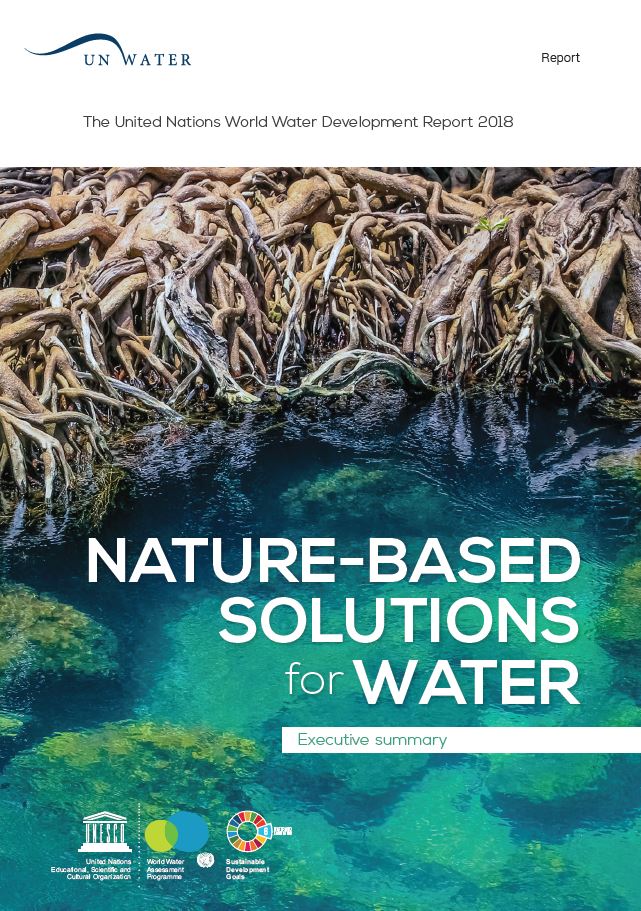The United Nations World Water Development Report 2018 Executive Summary
| Category | Periodical |
|---|---|
| Department | |
| Published Date | 2018 |
| Author | WWAP |
| Publisher | WWAP |
| Pages | 12 |
| Language | English |
| ISBN | |
| Attached File |
본문

Nature-based solutions (NBS) are inspired and supported by nature and use, or mimic, natural processes to contribute to the improved management of water. An NBS can involve conserving or rehabilitating natural ecosystems and/or the enhancement or creation of natural processes in modified or artificial ecosystems. They can be applied at micro- (e.g. a dry toilet) or macro- (e.g. landscape) scales. Attention to NBS has significantly increased in recent years.
This is evidenced through the mainstreaming of NBS into a wide range of policy advances, including in water resources, food security and agriculture, biodiversity, environment, disaster risk reduction, urban settlements, and climate change. This welcome trend illustrates a growing convergence of interests around the recognition
of the need for common objectives and
the identification of mutually supporting actions – as illustrated best in the 2030 Agenda for Sustainable Development
through its acknowledgment of the interdependency of its various goals and targets.
Upscaling NBS will be central to achieving the 2030 Agenda for Sustainable Development. Sustainable water security
will not be achieved through business-as-usual approaches. NBS work with nature instead of against it, and thereby
provide an essential means to move beyond business-as-usual to escalate social, economic and hydrological efficiency
gains in water resources management. NBS show particular promise in achieving progress towards sustainable food
production, improved human settlements, access to water supply and sanitation services, and water-related disaster
risk reduction. They can also help to respond to the impacts of climate change on water resources.
NBS support a circular economy that is restorative and regenerative by design and promotes greater resource
productivity aiming to reduce waste and avoid pollution, including through reuse and recycling. NBS also support the
concepts of green growth or the green economy, which promote sustainable natural resource use and harness natural
processes to underpin economies. The application of NBS for water also generates social, economic and environmental
co-benefits, including improved human health and livelihoods, sustainable economic growth, decent jobs, ecosystem
rehabilitation and maintenance, and protecting/enhancing biodiversity. The value of some of these co-benefits can be
substantial and tip investment decisions in favour of NBS.
However, despite a long history of and growing experience with the application of NBS, there are still many cases where
water resources policy and management ignore NBS options – even where they are obvious and proven to be efficient.
For example, despite rapidly growing investments in NBS, the evidence suggests that this is still well below 1% of total
investment in water resources management infrastructure.










